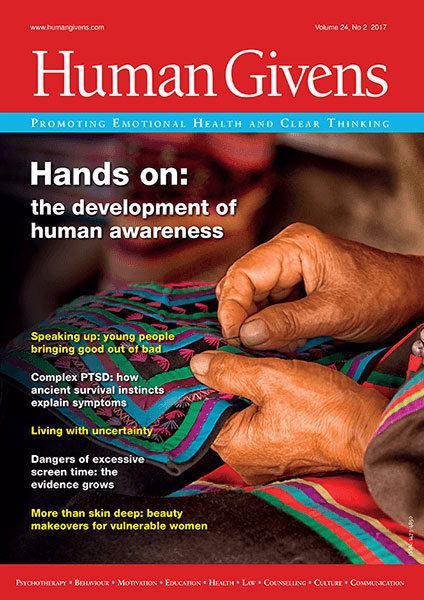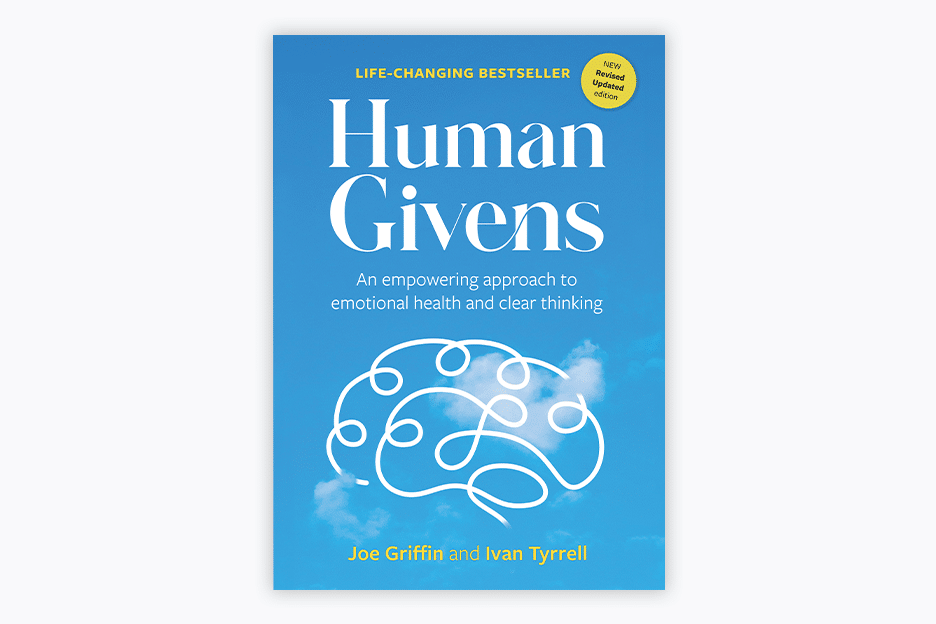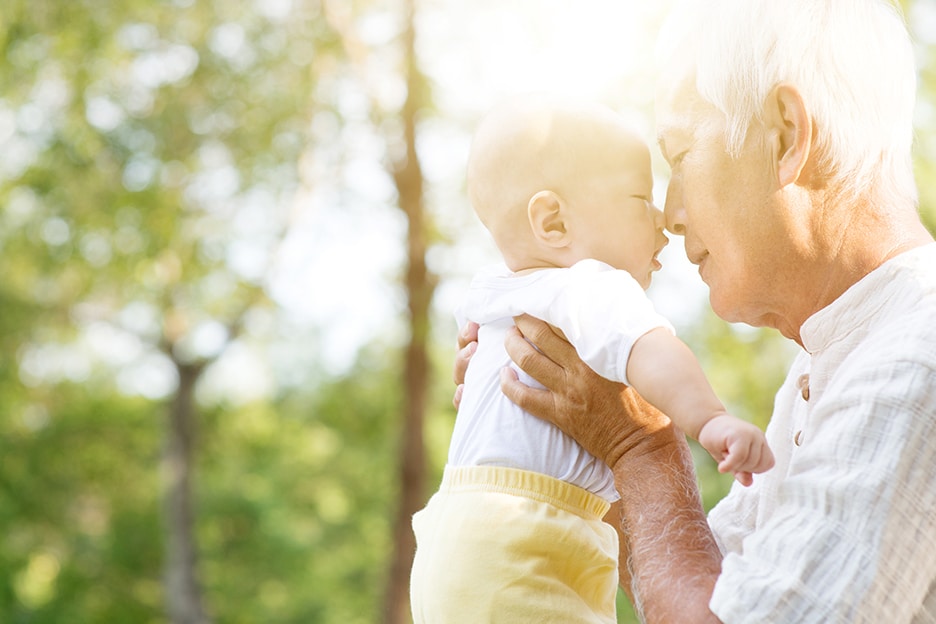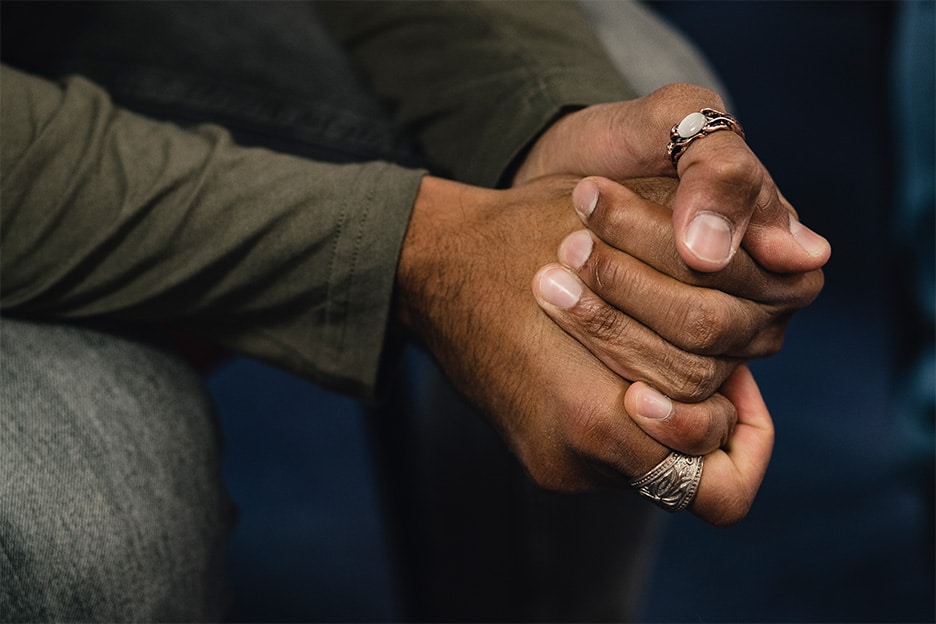
Volume 24, No 2, 2017
Human Givens Journal
Format: A4 Printed Journal (60pp) / Digital PDF Journal (60pp)
ISBN: 1473-4850 (ISSN)
- From: £4.00 - £5.00
In stock
Editorial:
Helping hands
How we are: News, views and information:
- Profitable organisations
- Universal responses to stories
- ‘Low intensity’ CBT relapse rate
- Ingenious way to help hoarding
- The placebo effect of SSRIs
- Terrorists’ morality
- How writing can reduce stress
- New discoveries about ‘split brain’
- Messaging people with depression
- Schizophrenia ‘on the way out’
- Breathing and perception of danger
- Gut response to PTSD
- Therapy for fibromyalgia
- Anxiety and alcohol
- When feeling pain may be helpful
- Hidden language disorder
- How sat navs affect memory
- Alcohol and impact on attention
- Bad job worse for health than no job
- Functional neurological disorders
- How power corrupts the brain
- Memory
- Brain and brawn
- New findings about ‘calming’ neurochemical GABA
- Them and us
- Suicide and young people
- When poor sleep is not a problem
When ‘silly’ makes sense
Pat Williams on the impact of childhood patterns, imaginings, and stories that open a door to so much more.
How the human hand helped evolve our sense of self
Ezra Hewing explores the link between the evolution of fine motor skills and advanced cognitive development.
LEARNING CURVE
DBT therapist Kristina Faulkner describes her experience of the power of human givens techniques.
The significance of stillness
Stephen Porges tells Denise Winn what his discovery of a bodily defence system older than fight or flight teaches us about trauma.
The downsides of being digitally native
Aric Sigman explores the negative effects on young people’s mental health of excessive screen use.
Living with uncertainty
In advance of the 2018 human givens conference next May, Ivan Tyrrell reflects on its theme.
Speaking truth to power
Chris Dyas describes an action group that helps young people bring some positives out of experience of harm.
Beautiful outside and in
Lee Pycroft shows how a beauty makeover can trigger self-care and self-respect in vulnerable or traumatised women




Highly recommended – I really enjoyed this first issue, thank you.